Budapest | Travelogue Part II
Part 2 of 3: "Union". Travel essay & photography. Started 6.24.26; finished 7.11.25.
My hotel room is a little oasis. It’s a third-floor unit, off a tall courtyard running up the center of the building. Courtyards are essential public spaces in Budapest, as I come to find: respites from the noise and dirt of the street where you can be outside, with friends in semi-private cool and shade, without alcohol restrictions. The room itself is quiet and sturdy - high ceilings and heavy curtains, black-and-white French tile in the bathroom, solid weight in its fixtures. I’m in instant love with the well-pressured rainhead shower, and the thick bathrobes.
I change, check in on work, and pick up some lagers from an Aldi around the corner. There are Scottish accents everywhere - at the airport, in the hotel, on the street-corners; along the Danube, thronging the market squares; everywhere I go, I hear the North. Little snatches of speech like “Dinnae thank we have tiem before tha taxay” keep dropping onto my ears. Whether this was due to some specific Scotch happening taking place here, some sort of shared history of travel and exchange, a series of white-hot travels deals cooked up by an Edinburgh travel agent - or just an odd coincidence - remains unresolved for me. But it's interesting to further consider the parallels between the places. Their shared history of feudal glories, followed by occupation, rebellion, and subjugation; their tendency, in politics, to recast and reclaim that history, in ways creative and destructive; their shared ability to produce stonemasons and sculptors with hands kissed by angels, and to employ them in creating their two capital cities.
No bigger point here, but as I say: interesting. As is Budapest’s service and hospitality culture. There’s a stubbornness, a fixity of position, a refusal to give ground, that characterizes service employees’ stances towards their guests. The minibar conversation I have in confirming my airport cab the day before departure provides one such example of this. Having got the nod that yes, the reservation would take place as scheduled, the receptionist asks me, “And have you had any items from the minibar?” “No,” I reply. Then I remember a Lindt bar I’d taken from the snack basket the previous night, and disclosed that. She stopped, still smiling, but with impatience creasing her words. “Obviously we saw the chocolate was gone (I’m assuming “obvious” because there had been a room-cleaning). I’m asking if you had any of the drinks from the fridge last night.” “No.” I got out of the conversation and back to my room soon thereafter.
And it was of a piece with another interaction I had a few hours later. I went with my college friend’s wife to get tickets for the three of us, while he went to find a locker for our excess bags and water bottle. The agent at the ticket desk, a woman of late-middle age, looked us over with a contempt more explicit than the concierge. “You won’t have time to see it all. The museum closes in an hour.” “Your hours say you’re open until six,” I point out. “We start closing at 5:30. Six is end of close” “That’s OK!” says my friend’s wife, with tact. “Any amount of time we can have here would be great.”
She looks at us warily - as if this request is totally unprecedented at 4:30, or as if we’re bound to be disappointed and then go to her boss, insisting that she’s at fault for selling us tickets to a subpar experience. It’s only after several long, strangely tense moments that our tickets are printed and paid for, and exchanged with a tap. “You won’t get to see it all,” she repeats, flatly, before resuming conversation with her colleague. My friend’s wife and I leave and say nothing, both of us now increasingly and unnecessarily pissed off by the interaction. But we stay calm, and ultimately, we both squeeze out 70 good minutes of museum time, plus a gift-shop visit.
What’s interesting, in either case, is the ambiguity in each woman’s intentions. Perhaps the receptionist figured me as unused to how four-star hotels run, based on my response to her question, and was simply trying to be emphatic about what “items from the minibar” meant in a language not her own. Perhaps the National Gallery ticket agent loved her job and workplace dearly, and was either aggravated or disappointed that we wouldn’t get the thorough look-around that she thought the place deserved. This pridefulness becomes even more legible when read against our recent history, and Hungary’s. Perhaps we American tourists, recent electors of a President who so resembles their own in manner, are complicit in changes they don’t wish to see in their country; perhaps we’ve been tarred with the Trump brush. Perhaps brusque service culture is the conditioned response of a host to an invader. Perhaps we’re just another unwelcome change, in a world already full of them.
*********** I walk the 25 minutes across the Erzsébet Bridge and up the Buda side of the Danube River towards a small bistro with high-end feel. A cellist and violinist are warming up for a set as I arrive, and bouncy Hungarian waltzes fill the space on their strings. The Groom, for whom I’m best-manning, is there with his parents (separated 30+ years), his sister and her family, and the Bride’s family. They’re mostly older, well-dressed Hungarians, staving off the heat still clutching the patio by taking cushioned seats in the dining room. The Groom looks happy, prosperous, comfortable: a man on the threshold of a sweet chapter in life.
My people are outside - two college friends mutual to the Groom and I, their spouses, and another friend from deeper in the Groom’s past, in attendance with his lovely wife. There’s much to discuss: one of the friends I haven’t seen since a trip he took to visit an uncle in the Upper East Side some 10 years ago. I talk up teaching (while shaking a weary head at the admin), and have much to say about life with Carla, who is 22 weeks pregnant at the time of my trip and staying stateside out of precaution. It’s happy talk - balanced nicely between reminiscences and the present/future tenses - and the evening ends on a good note. The only bitterness comes with the realization that I’ll need to end the evening early to resume end-of-year school business.
I take my time crossing the Erzsébet back to my hotel. The heat of the day rolls off the Danube and the buildings and streets at the sun’s setting. This cooling sends tourists and residents alike into a sort of peaceful-happy stupor: each bar’s music feels languid, liquid, and it spills out onto the sidewalks. *********** Friday begins unremarkably. I lose a day of tourism as I continue to meet both end-of-marking period and end-of-semester grading deadlines back in America. I finally close up shop on that nonsense around 3pm local time, and have about an hour to get ready before Friday welcome drinks at the nearby Brody House. Another chance to mingle with the Groom’s family and spend more time on conversation we’d only brushed past in catching up last night. Then, I find a far courtyard corner to post up with my two college friends and their wives, and continue last night’s catchups.
More live music attenuates this wedding event: a young man and woman (perhaps a couple) play a mix of Hungarian guitar-and-folk songs and American Songbook standards. The mood is upbeat-jazzy, riffy, smartly offhand. A group song-and-dance to what must be some sort of unofficial Hungarian anthem, with a chant-chorus that every Hungarian seems to know; with that, they’re done, and the welcome drinks wind down.
The bar is serving six types of spritz, along with hot-day pours that wouldn’t be out of place anywhere - chardonnay, lager, Aperol. Good gastronomy follows good drinks for us that night: one of our mutual college friends is a follower of food scenes, and has arranged for a Friday night dinner at SALT, a Michelin-starred restaurant near the welcome-drinks venue. We catch up at length, sliding in and out of whole-table topics and partner/small-group talk. All the couples do how-we-met stories, full of lots of interjections and digressions and pauses for the service. Each new glass of wine in the wine pairing, and each of the eight courses (I remember eight - seven? nine?) that we enjoy that night come with a carefully coordinated formal service, and an explanation by a server, chef, or somme as to not only what we were eating and drinking, but where, when, why and from whom. In some cases, how was also a necessity; seldom have I considered how much size and number of bites determine the experience of a meal.
The food? Richness, depth, variety in textures and moods and tastes; beyond compare, or the poverty of my adjectives. We taste all of Hungary - and flavors created in surrounding countries home to expat Hungarians, displaced by politics. My plebian palate is unused to such refinements; it appreciates them when they arrive, though, and they showed in full that Friday. SALT. If you’re in Budapest, and looking for special-occasion dining, toggle on your Caps Lock, and give it a look-up. *********** The night ends with us light and chatty on delicious Hungarian viniculture, meandering back to our respective hotels, laughter in every sentence. More magic moments. But we could little guess at the magic-work that Groom and Bride had planned and in store for us the following day. *********** Part 3 of 3: "Departure" will post tomorrow.




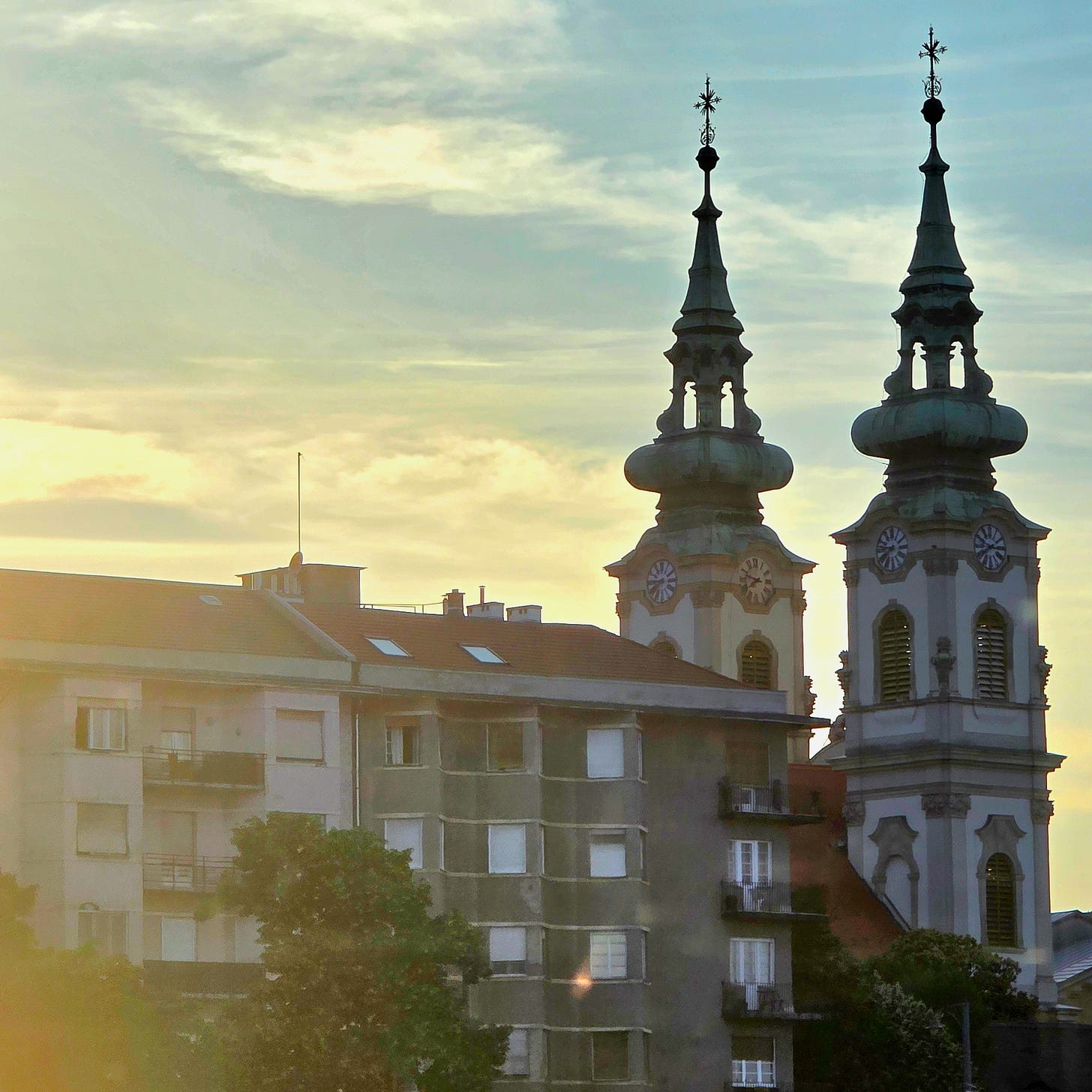
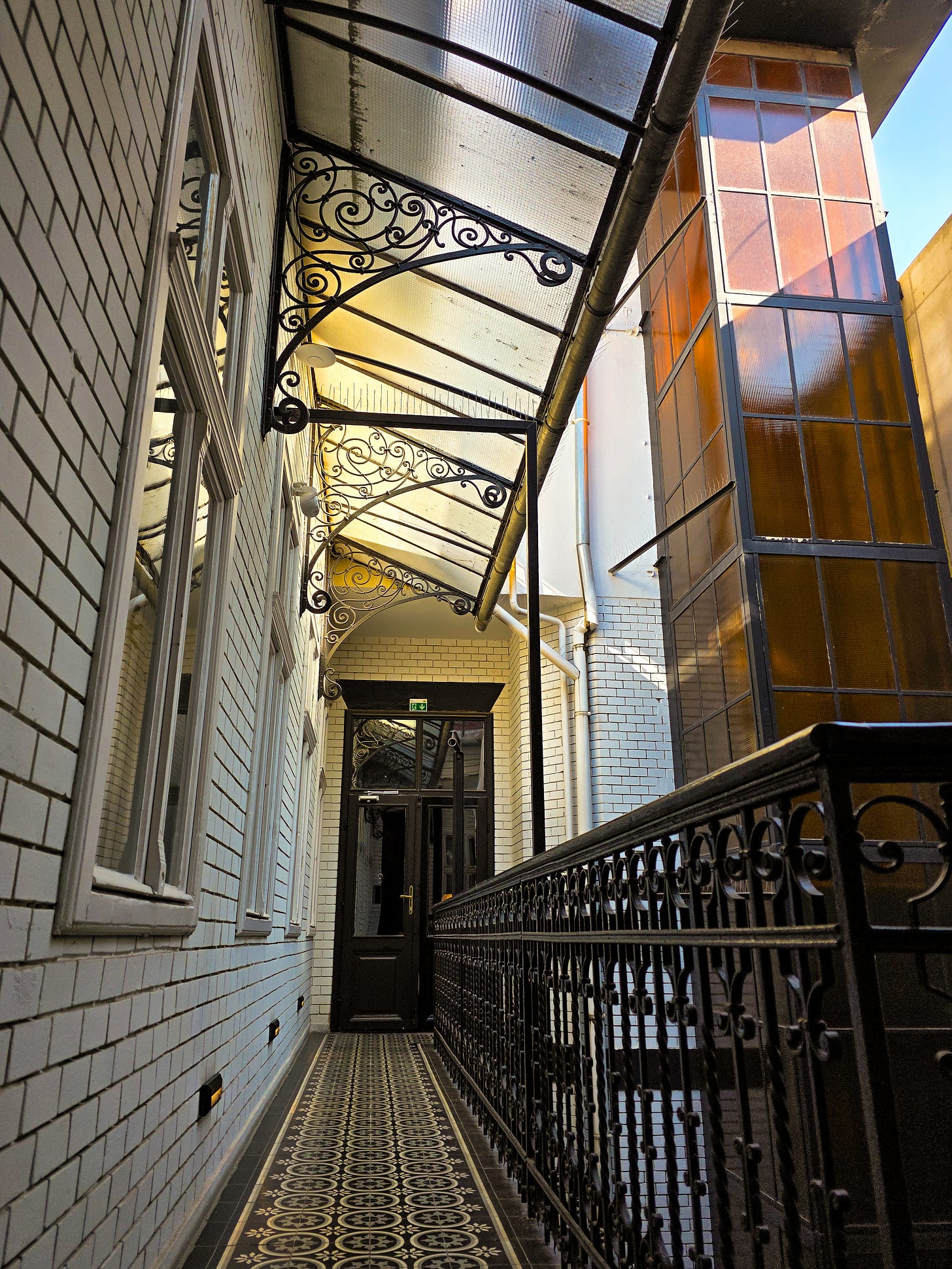
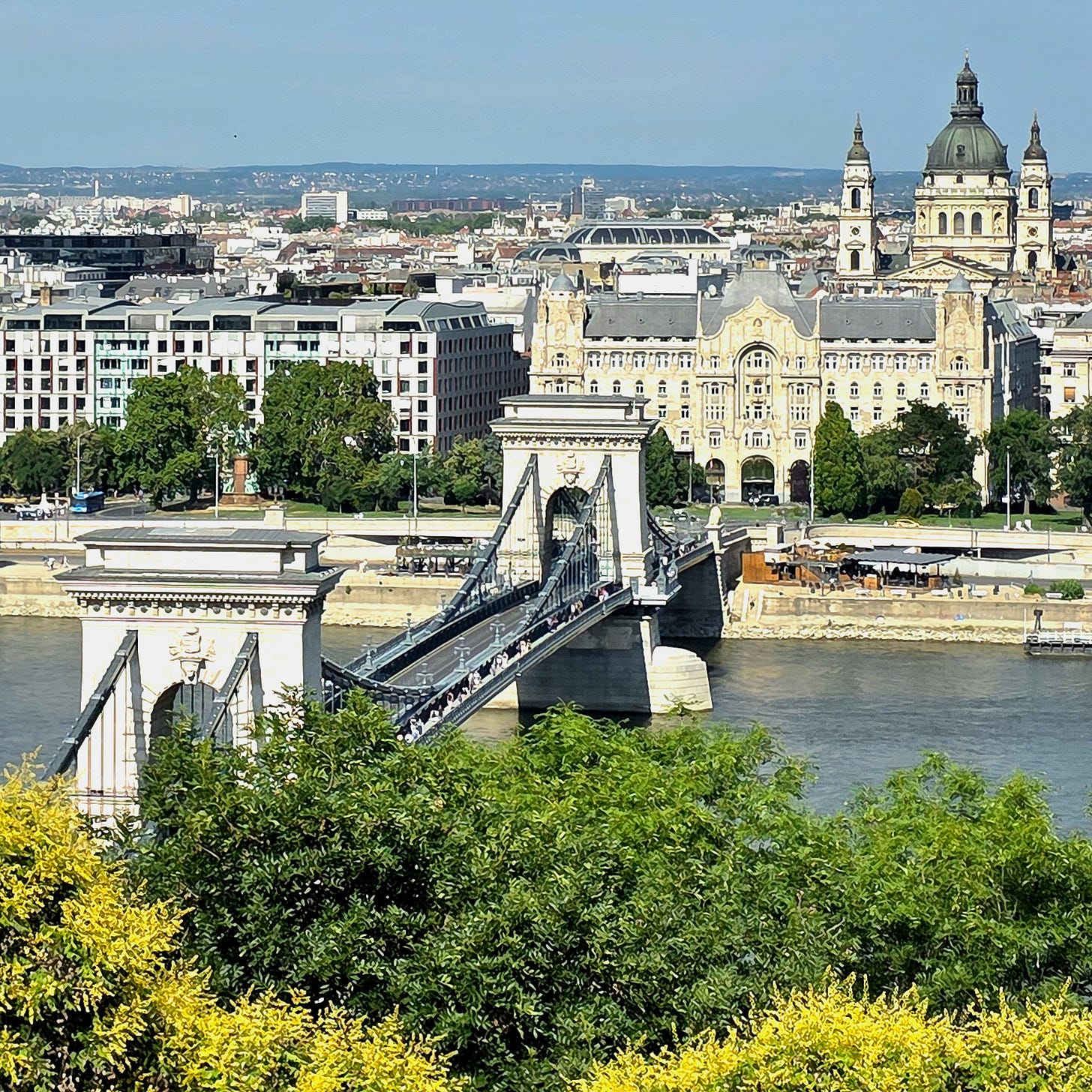
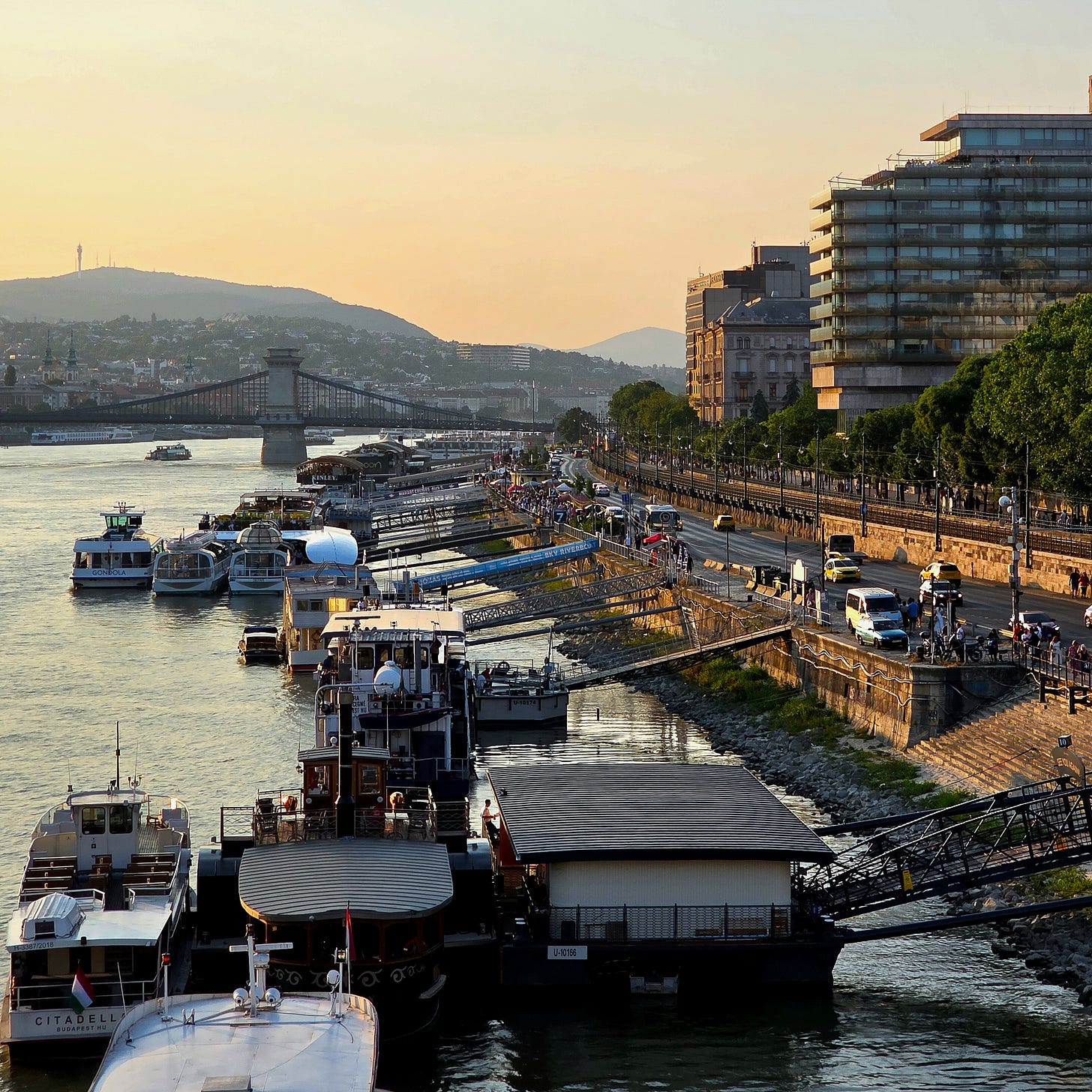
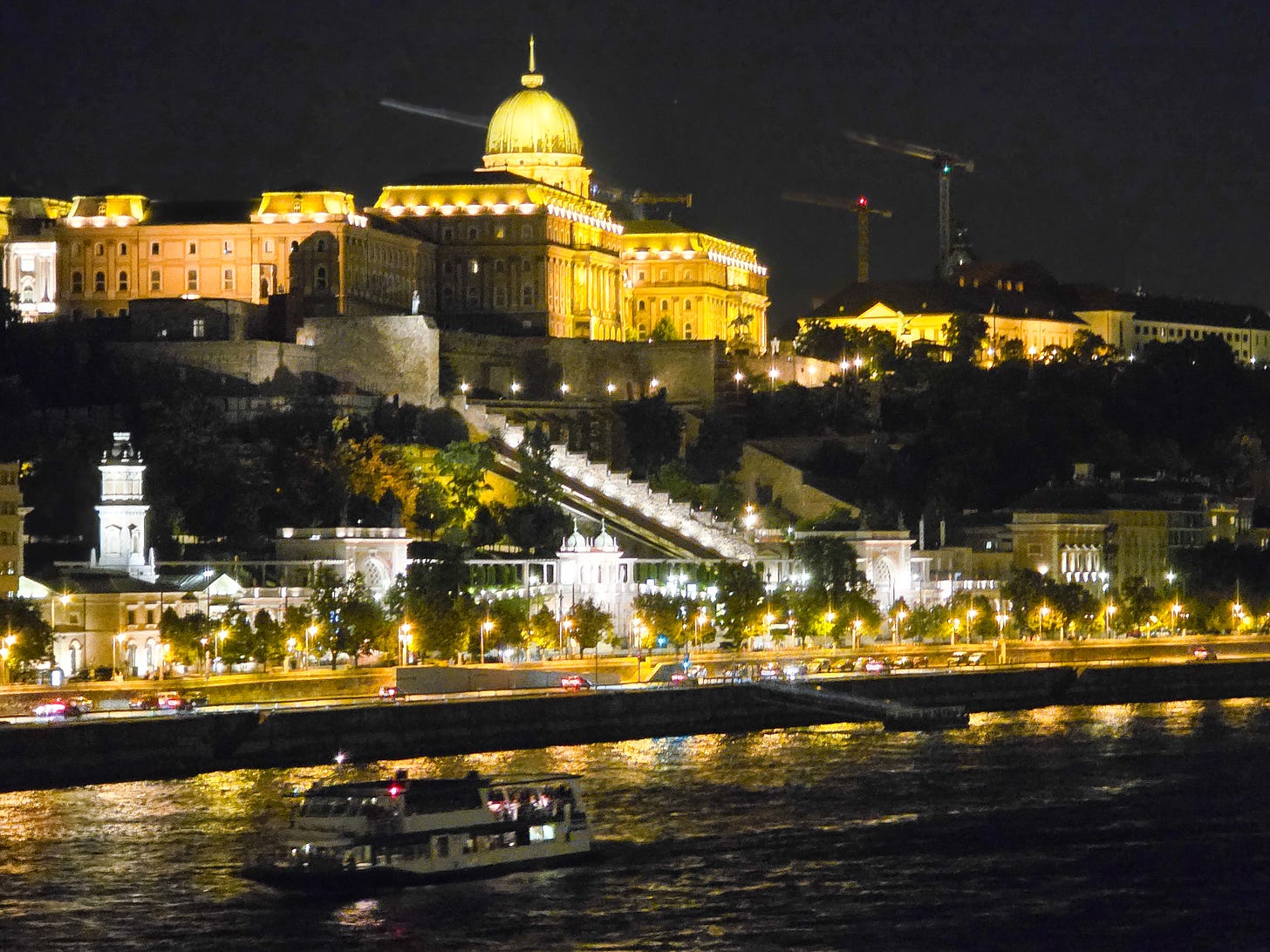

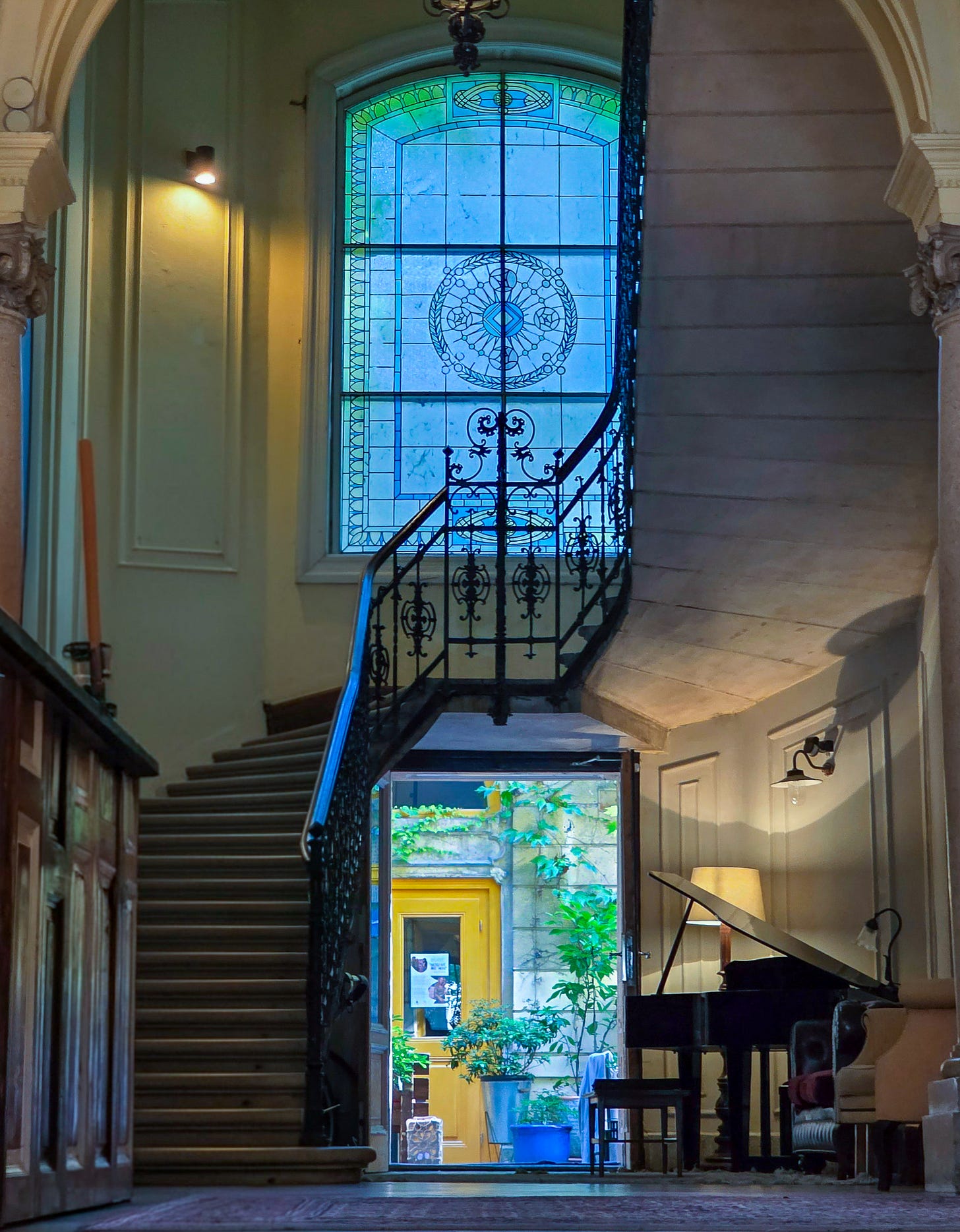
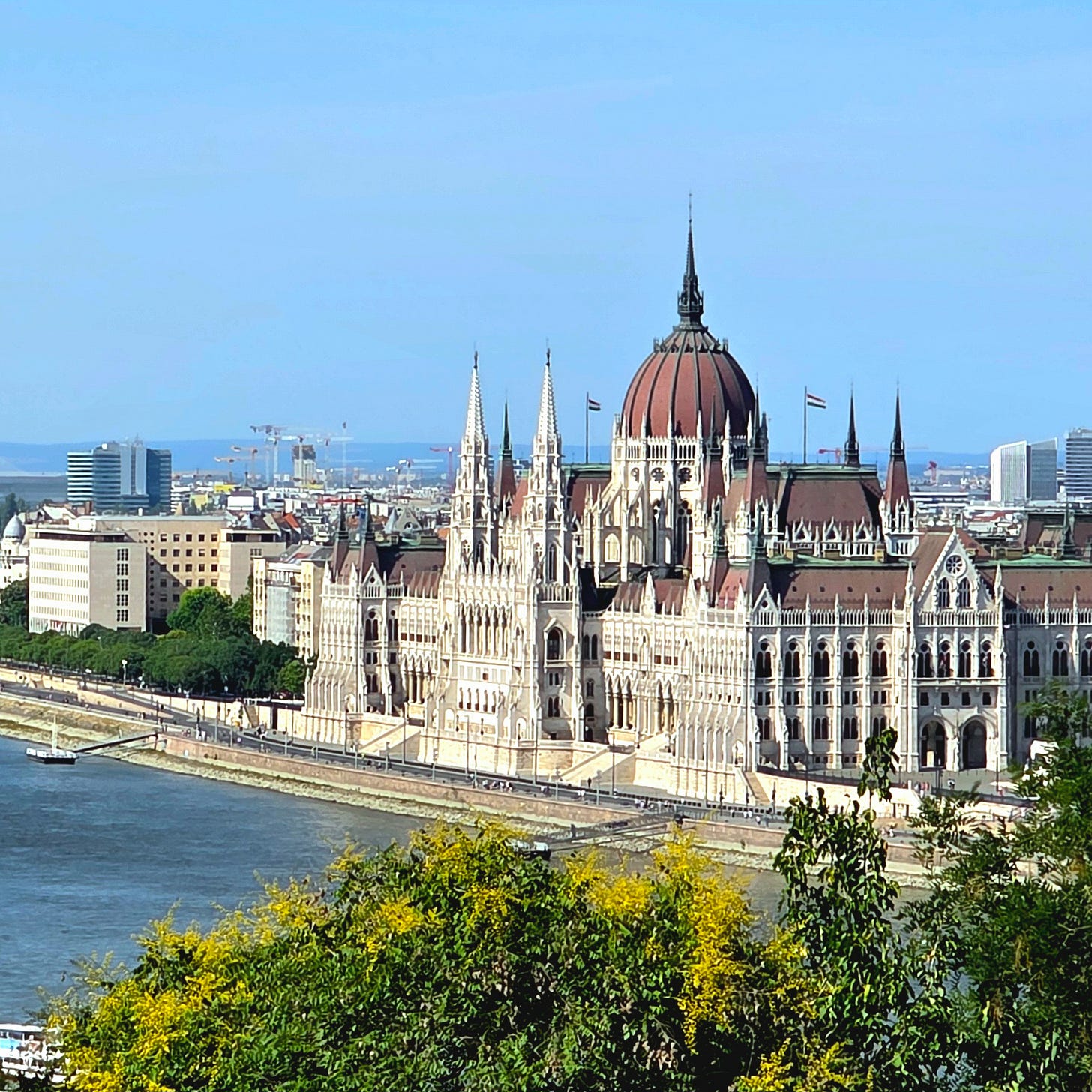
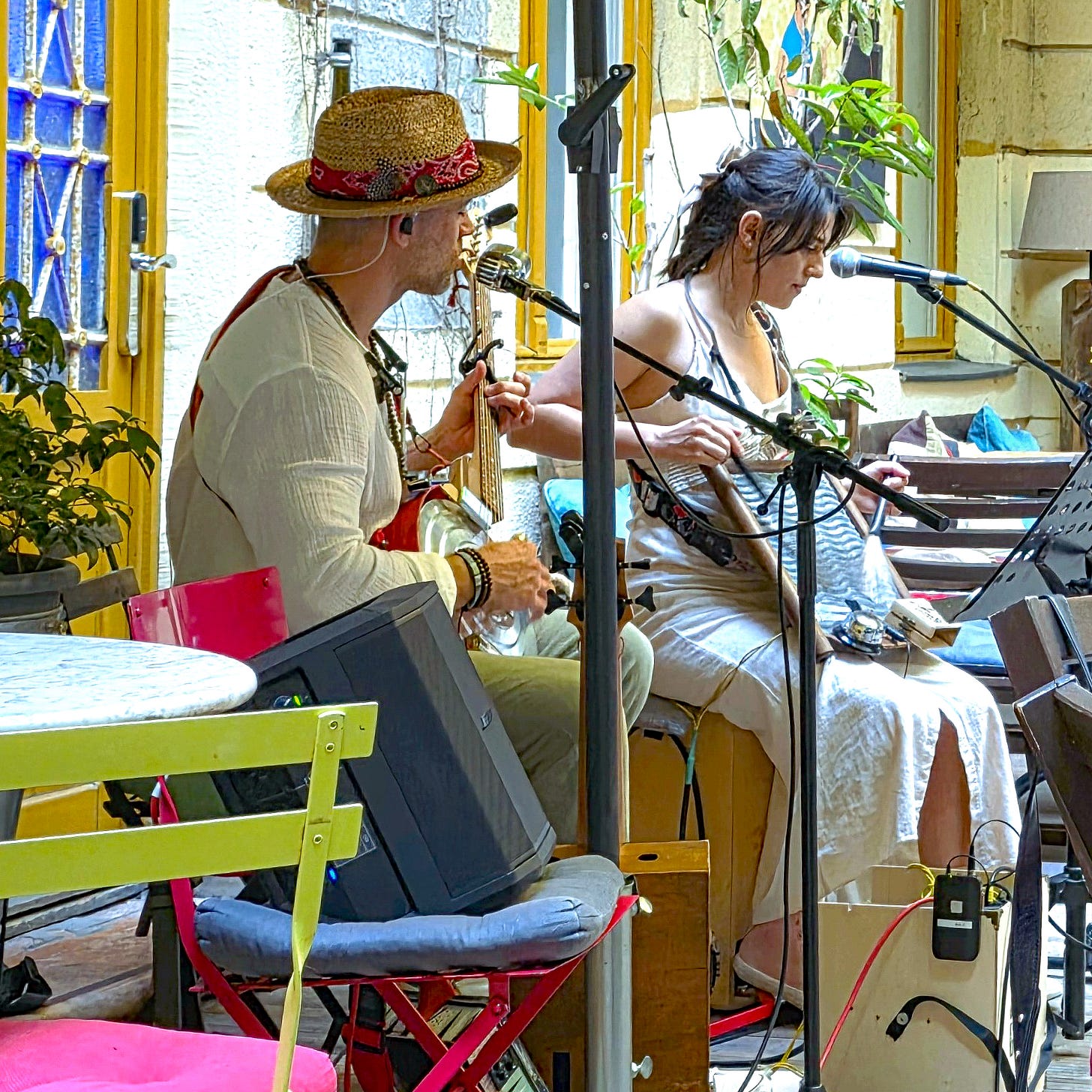
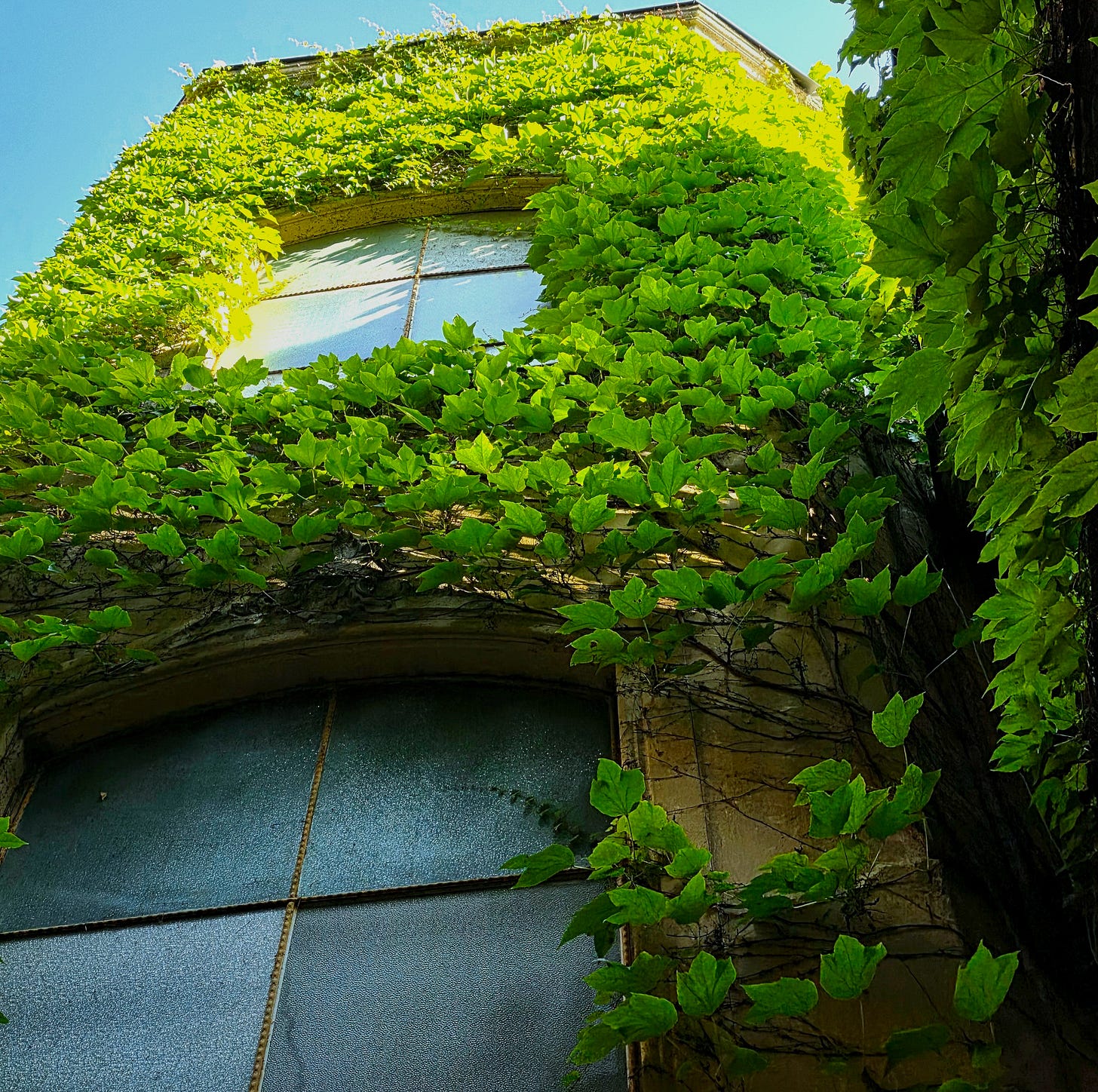
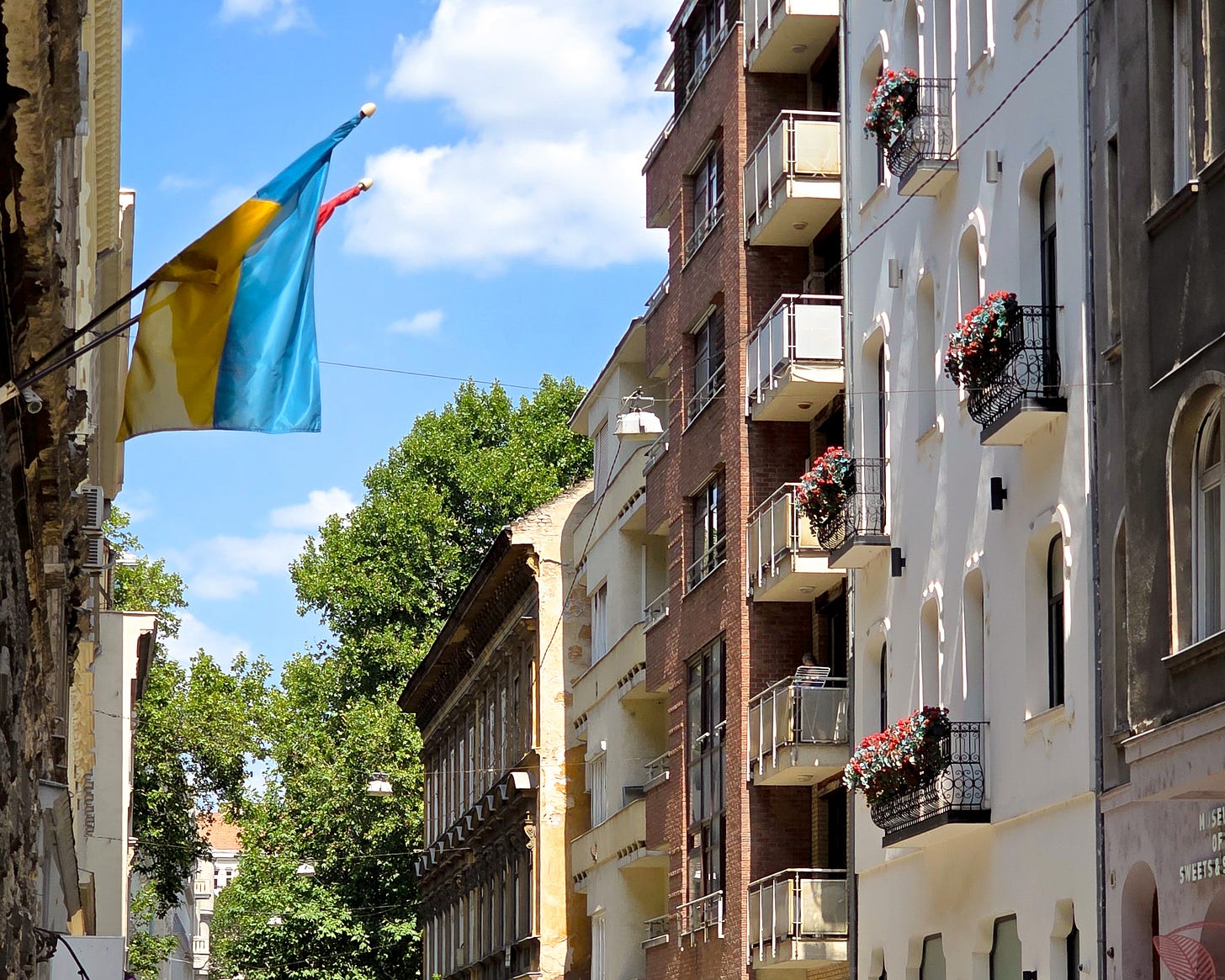
Really enjoyed reading your take on the foodscapes (despite your “plebeian palate”), and the hospitality there! And the shots in this post put the reader right there with you. PS I hope the chocolate bar was worth it 😂